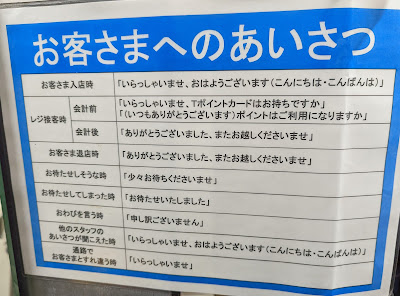The most challenging part of Japanese: VOLITIONAL VERBS 意志動詞 VS. NON-VOLITIONAL VERBS 無意志動詞
Note: Japanese Volitional verbs should be distinguished from verbs' volitional forms.
Before reading, please check this if you don't know what 他動詞 and 自動詞 are:
https://www.livinginjapanasaforeigner.com/2022/08/the-confusing-part-of-japanese.html
In conclusion:
Transitive verbs are volitional verbs, and non-volitional verbs are Intransitive verbs.
他動詞⇒意志動詞
無意志動詞⇒自動詞
Details
Difference between volitional verbs and non-volitional verbs
Words without potential form all use the form of "ない" to directly indicate "cannot."
Words with potential forms are just like common words; they use the potential form's "ない" form to mean cannot.
These two kinds of words are not Transitive verbs or Intransitive verbs. (to be exact, it is the difference between volitional verbs and non-volitional verbs)
For example:
- "届ける" refer to someone delivering something. (With people's participation)
- "届く" refers to those that can be delivered. (Without people's participation)
"届かない" refers to it cannot be delivered.
"届けない" refers to someone don't deliver something.
"届く" has no potential form, so use "届かない" to mean it cannot be delivered.
"届ける" isn't the potential form of "届く." So "届けない" just mean someone doesn't do the action of delivering.
Of course, 届ける has a potential form that is 届けられる. But this word is not used very much. It means that people who participate in it cannot deliver.
Another example:
「入らない」VS.「入れない」
「財布がカバンに入らない。」(cannot be able to)The wallet can't be put into the bag.
「私は部屋に入らない。」(not do something)I don't go into the room.
「私は部屋に入れない。」I can't get into the room. (cannot be able to)
"入る(はいる)" is both a volitional verb and a non-volitional verb.
As a non-volitional verb, there is no potential form of "入る(はいる)," so "入らない" is directly used to express impossibility. (object)
As a volitional verb, there is a potential form of "入る(はいる)," so "入れる" is used to express subjective impossibility. (person)
How to memorize these?
Just like this:
- "volitional verb" - person - complete form.
- "non-volitional verb" - thing - no potential form.
It is also infeasible to simply compare "whether it has potential form or not" to identify them, but this method is most effective.
Why it's infeasible?
Let me tell you why it's infeasible, for example, "開く."
"開ける has a potential form, which is "開けられる." ("volitional verb" &"Intransitive verbs")
You can just click this link to know that "開く" has two ways to read it. And it also has two potential forms.
So, it has potential form; is it a volitional verb? It depends.
("あく" is an Intransitive verb, and "ひらく" can be used as either a Transitive verb or an Intransitive verb.)
Why do I say "it depends"? For instances:
息子が医者になった。→Volitional verbs
時間が正午になった。→non-volitional verbs
酒を飲んで地面に倒れる。→Volitional verbs
地震でビルが倒れた。→non-volitional verbs
〇国に爆弾を落とす。→Volitional verbs
地下鉄で財布を落としてしまった。→non-volitional verbs
In other words, depending on how you use it, a word can be either a volitional or non-volitional verb.
But please remember that we first judge them by "whether there is a potential form," which directly leads to whether it now uses the "ない" form to express "cannot do something."
Even though I said it is infeasible to compare "whether it has potential form or not" to identify them, it works in most cases.
For example:
届ける→届けられる→人→volitional verb
届く→no potential form→届かない→non-volitional verb
見る→見られる→人→volitional verb
見える→no potential form→見えない→non-volitional verb
聞く→聞ける→人→volitional verb
聞こえる→no potential form→聞こえない→non-volitional verb
入れる→入れられる→人→volitional verb
入る→no potential form→入らない→non-volitional verb(But this is a particular case. Although it has the potential form, it is the potential form as a volitional verb.)
So don't worry, just use the rule.
You don't need to deliberately memorize these words and their deformations. When you keep using Japanese, the longer you use it, the more you will automatically master them.
I have to say that this is the most challenging part of Japanese, at least for me. If you can understand this in advance, it will be constructive for your future Japanese learning.


Comments
Post a Comment